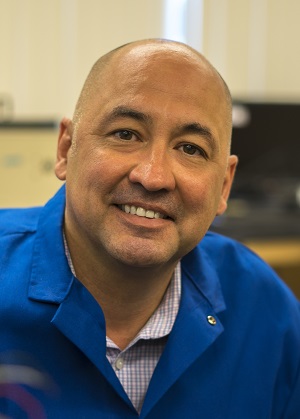Oregon NANO Webinar: Quasi 2D and 1D van der Waals Quantum Materials – From Physics to Device Applications
IEEE Oregon Nanotechnology Chapter Presents
Quasi 2D and 1D van der Waals Quantum Materials – From Physics to Device Applications
with Alexander A. Balandin, University of California, Riverside
Date/Time: October 4th, 2021 5-6:30 PM PT
Location: Virtual (WEBEX)
Date and Time
Location
Hosts
Registration
Speakers
 Alex Balandin of University of California, Riverside
Alex Balandin of University of California, Riverside
Quasi 2D and 1D van der Waals Quantum Materials – From Physics to Device Applications
In this invited talk, I will describe the properties and device applications of quasi-two-dimensional (2D) and quasi-one-dimensional (1D) van der Waals materials. The 2D van der Waals materials include graphene and the transition metal dichalcogenides (TMD), which exfoliate or grow into quasi-2D atomic layers. The focus will be on 1T-TaS2, a unique material with charge-density-wave (CDW) quantum phases, observed even above room temperature. The 1D van der Waals materials include members of the transition metal trichalcogenide (TMT) family, which exfoliate or grow into quasi-1D atomic threads or atomic chains. I will discuss electric bias switching among various CDW quantum phases in 1T-TaS2 and possibilities of their device applications [1-3]; current carrying capacity of TaSe3 atomic bundles [4]; the use of 1D materials in composites for electromagnetic interference shielding and in the next generation of communication systems [5]. This work was supported, in part, by DOE, SRC, and NSF DMREF.
[1] G. Liu, et al., Nature Nano, 11, 845 (2016); [2] A.K. Geremew, et al., Nanoscale, 11, 8380 (2019); [3] A.K. Geremew, et al., Appl. Phys. Lett., 116, 163101 (2020); [4] M.A. Stolyarov, et al., Nanoscale, 8, 15774 (2016); [5] Z. Barani, et al., Adv. Mater., 33, 2007286 (2021).
Biography:
Alexander A. Balandin received his BS and MS degrees Summa Cum Laude in Mathematics and Applied Physics from the Moscow Institute of Physics and Technology, Russia; and PhD degree in Electrical Engineering from the University of Notre Dame, USA. He is presently a Distinguished Professor of Electrical and Computer Engineering, and the University of California Presidential Chair Professor of Materials Science. His research expertise covers nanotechnology, materials science, electronics, and phononics fields.
Professor Balandin is The Vannevar Bush Faculty Fellow (2021) – the most prestigious single-investigator DOD award with $3 million funding that “supports new, out-of-the-box ideas where research creativity intersects with the unknown.” He is a recipient of The MRS Medal from the Materials Research Society for discovery of graphene thermal properties and the Pioneer of Nanotechnology Award from IEEE for his nanophononics research. He is an elected Fellow of MRS, APS, IEEE, OSA, SPIE and AAAS. Since 2015, he has been among the Clarivate Analytics Highly Cited Researchers – a distinction that recognizes the world's most influential researchers of the past decade, with multiple highly-cited papers that rank in the top 1% by citations in Web of Science. Professor Balandin serves as Deputy Editor-in-Chief of the Applied Physics Letters.
Email:
Address:Riverside, California, United States
Agenda
5:00 PM Introduction
5:05 PM Presentation and Q&A
6:30 PM End


 Add Event to Calendar
Add Event to Calendar